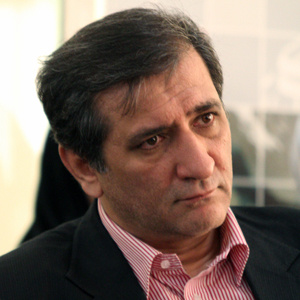Sine Curve in Azerbaijan’s Foreign Policy

Several governments have come to power in Azerbaijan; Iran has therefore experienced different behaviors from Azerbaijani Presidents. After the collapse of the Soviet Union Ilchi Baig and his anti-Iranian policies tried to disrupt the peace existing in the region. Mr. Haydar Aliyev was in Nakhjavan then, and constantly nagged about the situation in Baku and demanded more attention from neighboring countries to domestic Azerbaijani developments. He was concerned that the implemented policies of the then administration directed the country on the path of a new and deep collapse.
During Mr. Ilham Aliyev’s time, Iran-Azerbaijan relations boomed due to his experiences from the Soviet era. Today, it seems that some movements are attempting to deteriorate the relations between these two countries. They promote and emphasize secular issues in Azerbaijan and by doing so create a confrontation between the government and the people.
The Muslim community started demanding rights like wearing the hijab or building mosques during Ilham Aliyev’s time.
On the other hand, unbalanced approaches in Azerbaijan’s foreign policy have created some ups and downs in its political behavior. Many countries have criticized Azerbaijan for the interests and positions it is heading towards.
Azerbaijan should not forget to balance its strategic and geopolitical position in its foreign policy. In other words we see that Azerbaijan commits some mistakes in its foreign policy when it tries to rapidly react to issues. In other words, Azerbaijan has not been successful in solving its problems and having good relations with its neighbors.
During Aliyev’s time the “national security” doctrine was established but with bringing up congressional issues and increasing propaganda this doctrine has become less important.
Despite the developments going on in Islamic Middle Eastern countries Azerbaijan is well aware of the fact that on many occasions superficial movements such as “color revolutions” were attempted to influence this country and the CIS.
However today the protests in Azerbaijan are not in line with color revolutions or the Arab Spring; they are the demands of people, which the government should pay more attention to. The government should consider social rights and religious rights of its people as well.
Regarding the Karabakh dispute a group called the Minsk is taking action that is looked at with despair by the government. Russia is also putting more effort into resolving the issue and following the dispute within the 3+1 framework. Therefore, to have balance and an exact definition of its future, Azerbaijan has to define its position in regards to issues surrounding it more specifically. It should not neglect to fairly resolve the Karabakh dispute, and it should prevent the deterioration of its relations with its close neighbors by paying attention to certain important announcements and statements.

